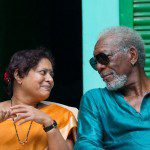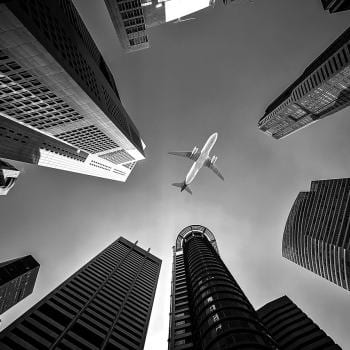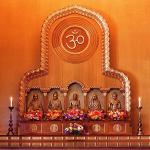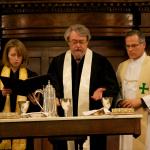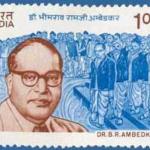A guest post by Daniel D. Woo (© 2016)
I once thought that I had very few indelible childhood memories in the first 4 years of my life and that what little I remembered had no impact on my life. Then I remembered learning from infancy three songs:
- The Kuomintang (Chinese Nationalists) Republic of China (ROC) National Anthem
- The US Army Aircorp
- The drinking song “Glorious”
The ROC anthem’s translated lyrics are:
“San Min Chu-i,
Our aim shall be:
To found a free land,
World peace, be our stand.
Lead on, comrades,
Vanguards ye are.
Hold fast your aim,
By sun and star.
Be earnest and brave,
Your country to save,
One heart, one soul,
One mind, one goal.”
I was also especially thrilled by Chorus III of the “US Army Aircorp” song since my dad had been trained in the US by the US Army Aircorp to be a P-51 pilot for the ROC:
“Off we go into the wild sky yonder,
Keep the wings level and true
If you’d live to be a grey-haired wonder
Keep the nose out of the blue!
Flying men, guarding the nation’s border,
we’ll be there followed by more!
In echelon we carry on, Hey!
Nothing’ll stop the U.S. Air Force!”
However the song that most imprinted my mind was “Glorious”, which was a popular drinking song since the 1920’s and also the UC Berkeley sports anthem. Dad had attended Berkeley for part of one year before dropping out to join the Nationalists Army Air Force to become a P-51 fighter pilot.
And years later when I went to UC Berkeley, I came prepared already knowing its sports anthem.
In China, Taiwan and later the US, whenever I was sick, my dad prepared hot toddies for me and added OTC (“over the counter”) codeine medications from Chinese pharmacies. Later as I was adult, I made myself hot toddies with OTC codeine containing flu or cold medications until codeine was banned from OTC sales.
It took me some time to understand any Souse Family was not a happy family and life in one was inglorious, to say the least.
Chinese culture has some ancient proverbs encouraging drinking alcohol in copious quantities:
- “Consuming alcohol assists with removing deceit and revealing the truth.”
- “A thousand cups of wine is not too much when bosom friends meet together.”
Contrast the above to a Japanese Zen proverb:
- “First the man takes a drink, then the drink takes a drink, then the drink takes the man.”
Here is one of many variations of some of the lyrics to “Glorious”:
“Drunk last night. Drunk the night before,
Gonna get drunk tonight like I never been drunk before,
For when I’m drunk I’m as happy as can be;
For I am a member of the Souse family
Chorus
Singing Glo-ri-ous! Glo-ri-ous!
One keg of beer for the four of us!
Singing glory be to God that there are no more of us;
For one of us could drink it all alone!
The Souse family is the best family
That ever came over from Old Germany.
With the Highland Dutch, and the Lowland Dutch;
The Rotterdam Dutch, and the other damn Dutch.”
(Just typing these lyrics brings up the music in my mind.)
Conditioned in my mind was the delusional idea the alcohol and codeine were healing medications fitting for any pain without any recognition what havoc took place in my birth family or in what I saw among friends and acquaintances in sports, business, schools our sons attended and the wider communities, from misuse of alcohol or medications.
Our Souse family was as far away as any family can be from a “best family.”
Add alcohol to dad’s childhood toxic stress, rage and PTSD, and it became a living hell for mom, my brother and me.
It’s a destructive myth that Chinese naturally have some kind of immunity to alcoholism.
During my parents growing up in China, alcohol and drugs infused the leaders of both the PRC (Peoples’ Republic of China and its Chairman Mao Tse-tung) and the Kuomintang (Nationalists). Their legacy continues to this date in the PRC. In 2009, I read this article from the Wall Street Journal:
The dangers of China’s boozy cadre culture are back in the spotlight after one official died and another fell into a coma in separate incidents last week.
Jin Guoqing, 47, a water resources official in the central Chinese city of Wuhan, died after suffering a heart attack during a banquet, the China Daily reports. Medical records indicated that the heart attack was triggered by heavy alcohol consumption, the report said. Also last week, Guangdong official Lu Yanpeng fell into a coma after drinking during a meal with a Communist Party cadre, the China Daily said.
The recent cases highlight just how hard it is to put an end to the cultural expectations that guests will be wined and dined to excess at lavish banquets, a practice that higher level authorities have been trying to crack down on. Failure to conform to such expectations is likely to make the host feel a loss of “face,” or social standing.
At such events, expensive delicacies, such as shark’s fin, abalone and sea cucumber, are often featured on the menu, complemented by repeated toasts of the potent Chinese liquor known as baijiu. A visit to a karaoke bar or massage parlor might round out an evening’s festivities. Each year, an estimated 500 billion yuan ($73 billion) is spent on official banquets, representing a third of total consumer spending on eating out, the China Daily said.
Not everyone enjoys the heavy drinking that goes along with doing business in China.
“Refusing to drink is considered disrespectful,” one official told China Daily. “Neither my guests nor I want to get drunk but we have to play under the unspoken rule, which has been around for so long.”
Higher-level efforts to put a stop to the ingrained drinking habits have met with mixed results. In 2005, Jin Guoqing’s district government banned civil servants from consuming alcohol at lunch, though they didn’t restrict consumption in the evening, which is when Jin’s fatal banquet was held.
In another high-profile case over a year ago, Guo Shizhong, a family planning official in central China, died after suffering from an alcohol-inflicted brain hemorrhage at a nighttime karaoke party. His city had also banned officials from drinking at lunchtime. Local officials posthumously honored Guo with an award usually reserved for officials who die honorably on the job. But after a local newspaper reported that he died while drinking on the job, a public outcry ensued and the award was rescinded.”
Unfortunately, Guo’s fate doesn’t seem to have served as a sufficiently cautionary tale for other officials.’
The World Health Organization (“WHO”) reports to alarming statistics in the PRC on growing alcoholism rates: http://www.who.int/bulletin/volumes….
And more recently alarms in the bourbon industry have been raised by PRC consumption and demand for a key ingredient to hot toddies: bourbon. “Fear not bourbon and whiskey hoarders: rumours of a shortage are overhyped” reports the Guardian in an article on December 8, 2014:
“Bourbon hoarders are amassing hundreds of bottles in their basements. There’s not enough charred oak to go around for Tennessee’s barrels. Chinese and South Korean businessmen guzzling America’s fashionable liquors are driving prices up. It all points in one direction, if you believe the reports: to a catastrophic shortage of the world’s best whiskey and bourbon.” [Italics added.]
My dad’s hungry ghost must be roaring at these current events.
For a few decades I used to think that Chinese (as evidenced by my parents, my paternal grandparents, and one of my aunt’s families), were assholes. Then I finally woke up to the truth that Chinese were not per se assholes, but drunk Chinese generally fit the description and that alcohol was neither medicinal nor healing.
A few years earlier I also confronted my excesses with alcohol (not with medications which I never liked and had allergic reactions to) and realized that I was becoming what I feared most, to be a drunk Chinese asshole.
Therefore, it was for me not a coincidence that shortly afterwards I adopted Buddhism and decided to live up to all the Buddhist precepts, including the Fifth Precept. This change has been essential for establishing a floor for the waking up process and changes that accompany mindfulness, meditation, loving-kindness, healing, contemplative and compassion practices of Buddhism.
The Fifth Precept of Buddhism, as translated from the Pali Canon, is “I undertake the training rule to abstain from fermented and distilled intoxicants which are the basis for heedlessness.”
The fifth precept reads: Suramerayamajjapamadatthana veramani sikkhapadam samadiyami, “I undertake the training rule to abstain from fermented and distilled intoxicants which are the basis for heedlessness.” The word meraya means fermented liquors, sura liquors which have been distilled to increase their strength and flavor. The word majja, meaning an intoxicant, can be related to the rest of the passage either as qualified by surameraya or as additional to them. In the former case the whole phrase means fermented and distilled liquors which are intoxicants, in the latter it means fermented and distilled liquors and other intoxicants. If this second reading is adopted the precept would explicitly include intoxicating drugs used non-medicinally, such as the opiates, hemp, and psychedelics. But even on the first reading the precept implicitly proscribes these drugs by way of its guiding purpose, which is to prevent heedlessness caused by the taking of intoxicating substances.
The taking of intoxicants is defined as the volition leading to the bodily act of ingesting distilled or fermented intoxicants. It can be committed only by one’s own person (not by command to others) and only occurs through the bodily door. For the precept to be violated four factors are required:
- the intoxicant;
- the intention of taking it;
- the activity of ingesting it; and
- the actual ingestion of the intoxicant. The motivating factor of the violation is greed coupled with delusion. No gradations of moral weight are given. In taking medicines containing alcohol or intoxicating drugs for medical reasons no breach of the precept is committed. There is also no violation in taking food containing a negligible amount of alcohol added as a flavoring.
This fifth precept differs from the preceding four in that the others directly involve a man’s relation to his fellow beings while this precept ostensibly deals solely with a person’s relation to himself — to his own body and mind. Thus whereas the first four precepts clearly belong to the moral sphere, a question may arise whether this precept is really ethical in character or merely hygienic. The answer is that it is ethical, for the reason that what a person does to his own body and mind can have a decisive effect on his relations to his fellow men. Taking intoxicants can influence the ways in which a man interacts with others, leading to the violation of all five precepts. Under the influence of intoxicants a man who might otherwise be restrained can lose self-control, become heedless, and engage in killing, stealing, adultery, and lying.
Abstinence from intoxicants is prescribed on the grounds that it is essential to the self-protection of the individual and for establishing the well-being of family and society. The precept thus prevents the misfortunes that result from the use of intoxicants: loss of wealth, quarrels and crimes, bodily disease, loss of reputation, shameless conduct, negligence, and madness.
The precept, it must be stressed, does not prohibit merely intoxication but the very use of intoxicating substances. Though occasional indulgences may not be immediately harmful in isolation, the seductive and addictive properties of intoxicants are well known. The strongest safeguard against the lure is to avoid them altogether.
Source: Taken and adapted from “Going for Refuge & Taking the Precepts”, by Bhikkhu Bodhi. Access to Insight (Legacy Edition), 1 December 2013.”
I also had and still have substantial support in twelve step groups and Buddhist recovery groups where I met other people like me who had left alcohol behind to live a different and spiritually based life.
My family (my own family members and my friends) today are not a Souse Family, for which I am very grateful.
Dan Woo is a lawyer who has for over 36 years represented creative, innovative companies and individuals, in the arts, software publishing, medical technologies and other fields. Dan has also seen much suffering in the imperfections of conflict resolution in the US legal system.

